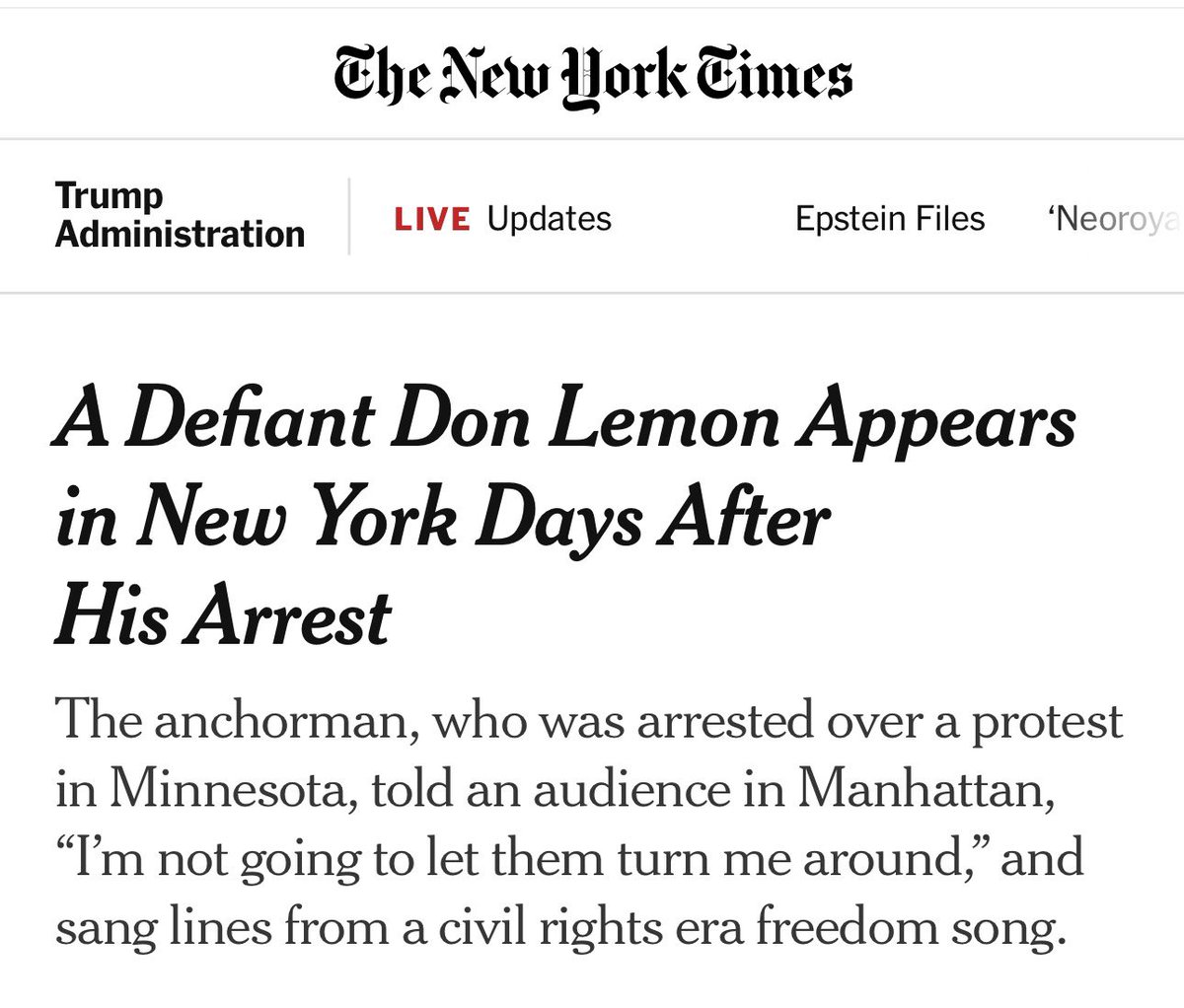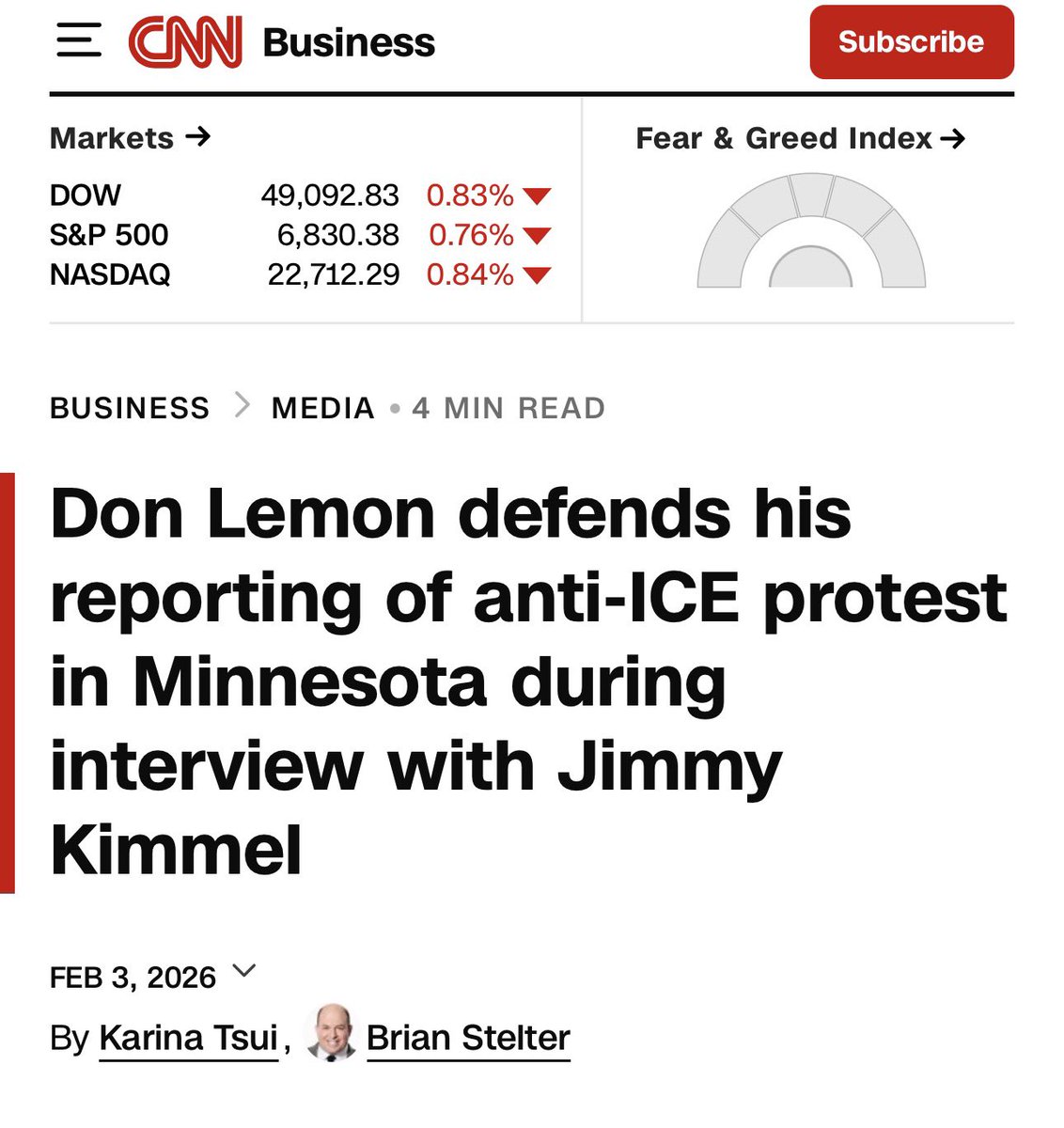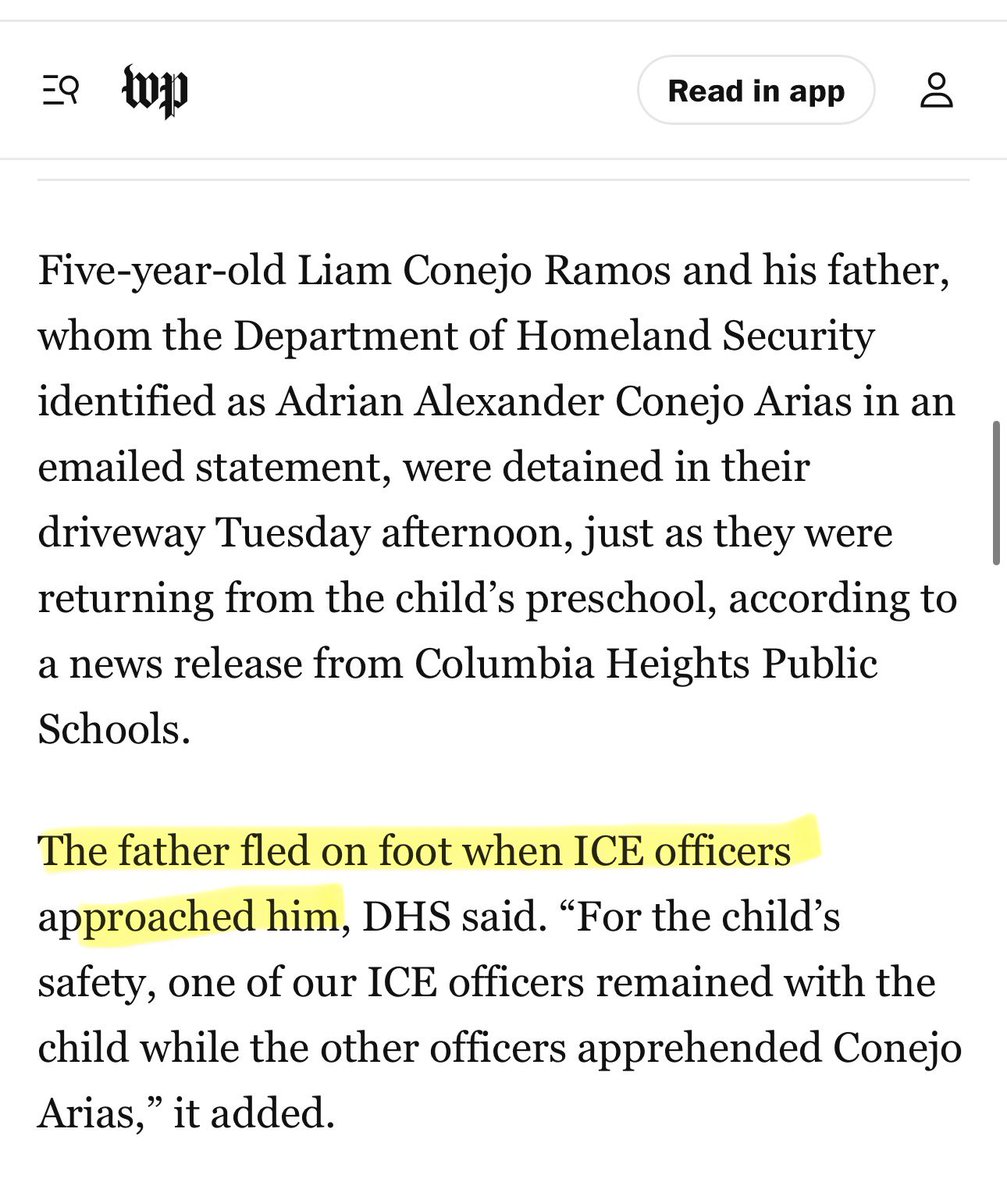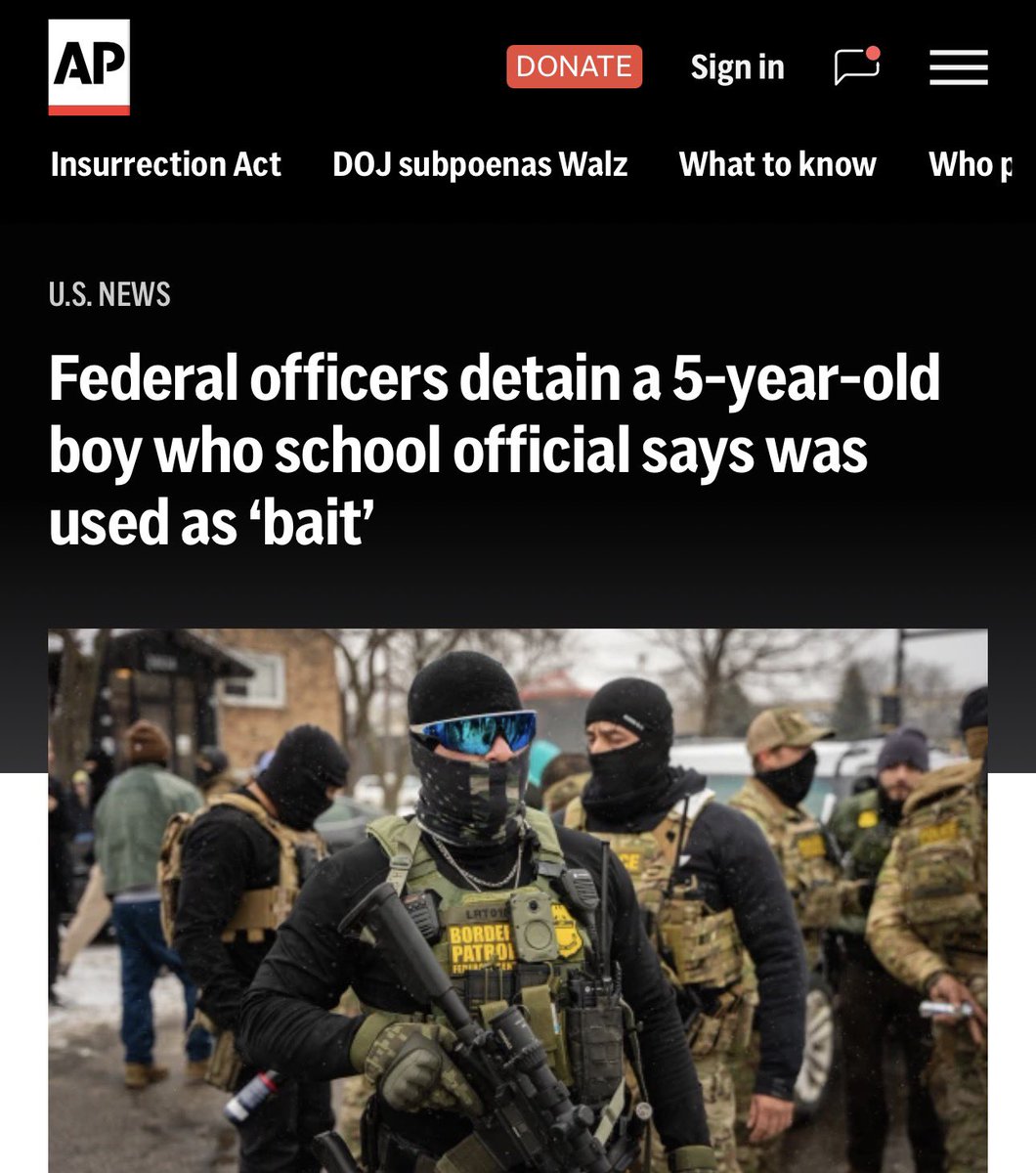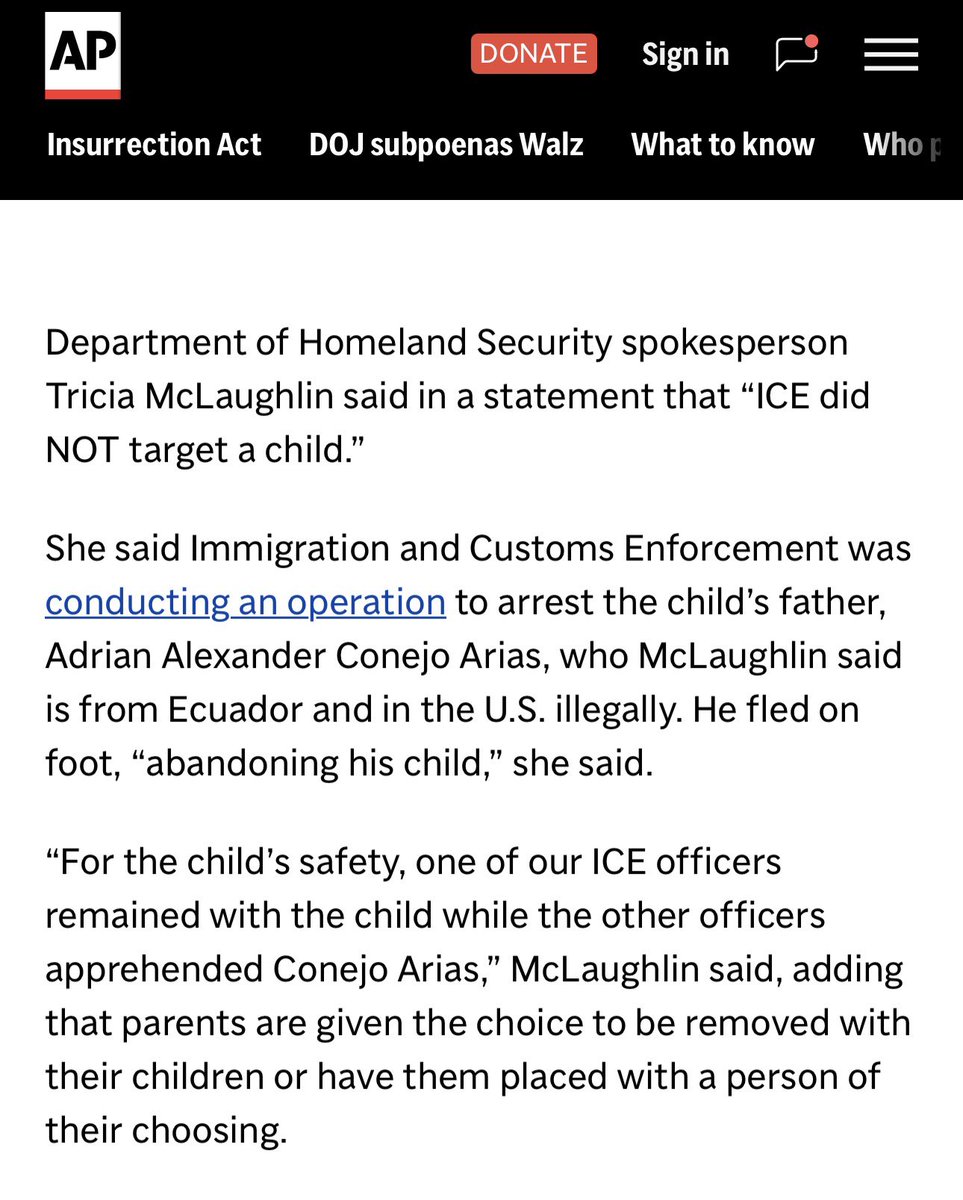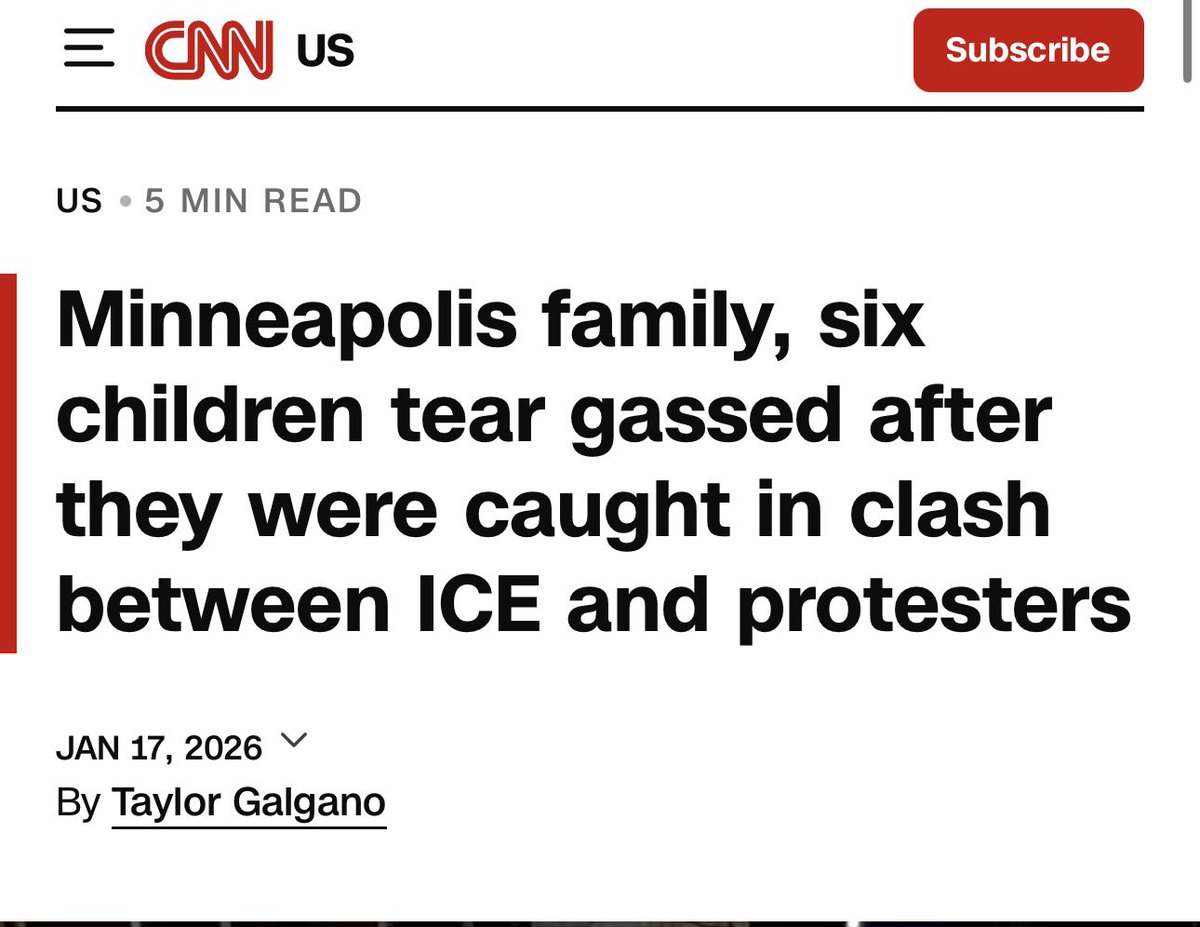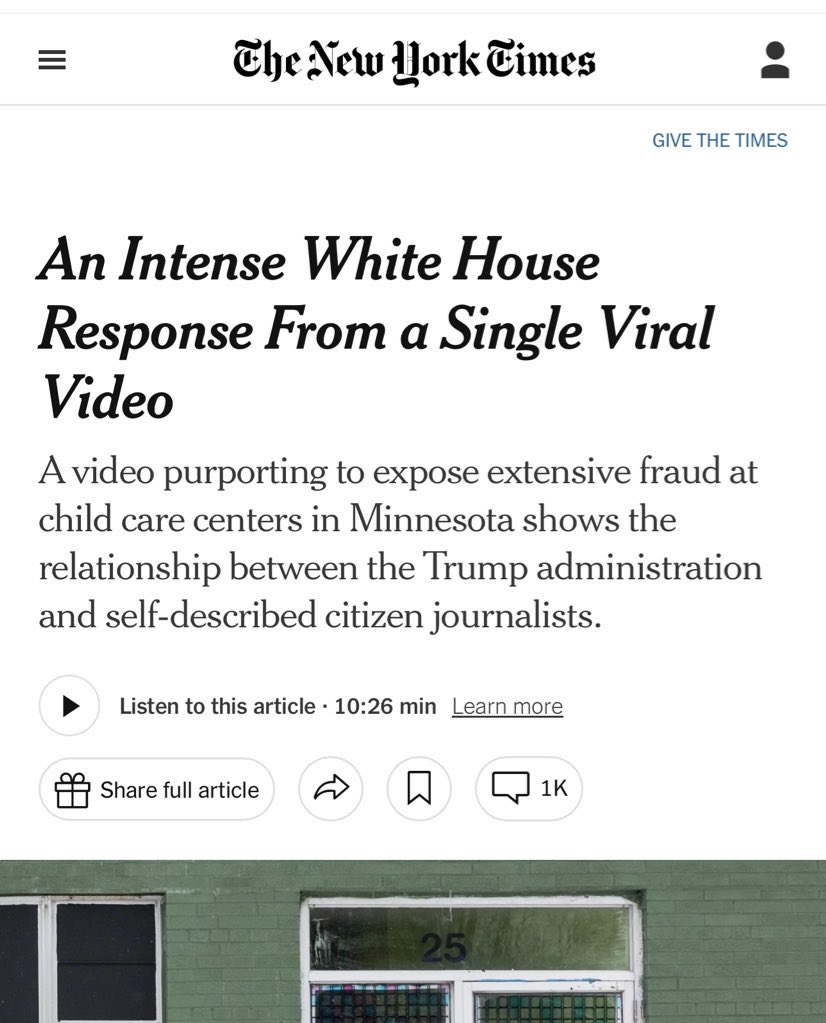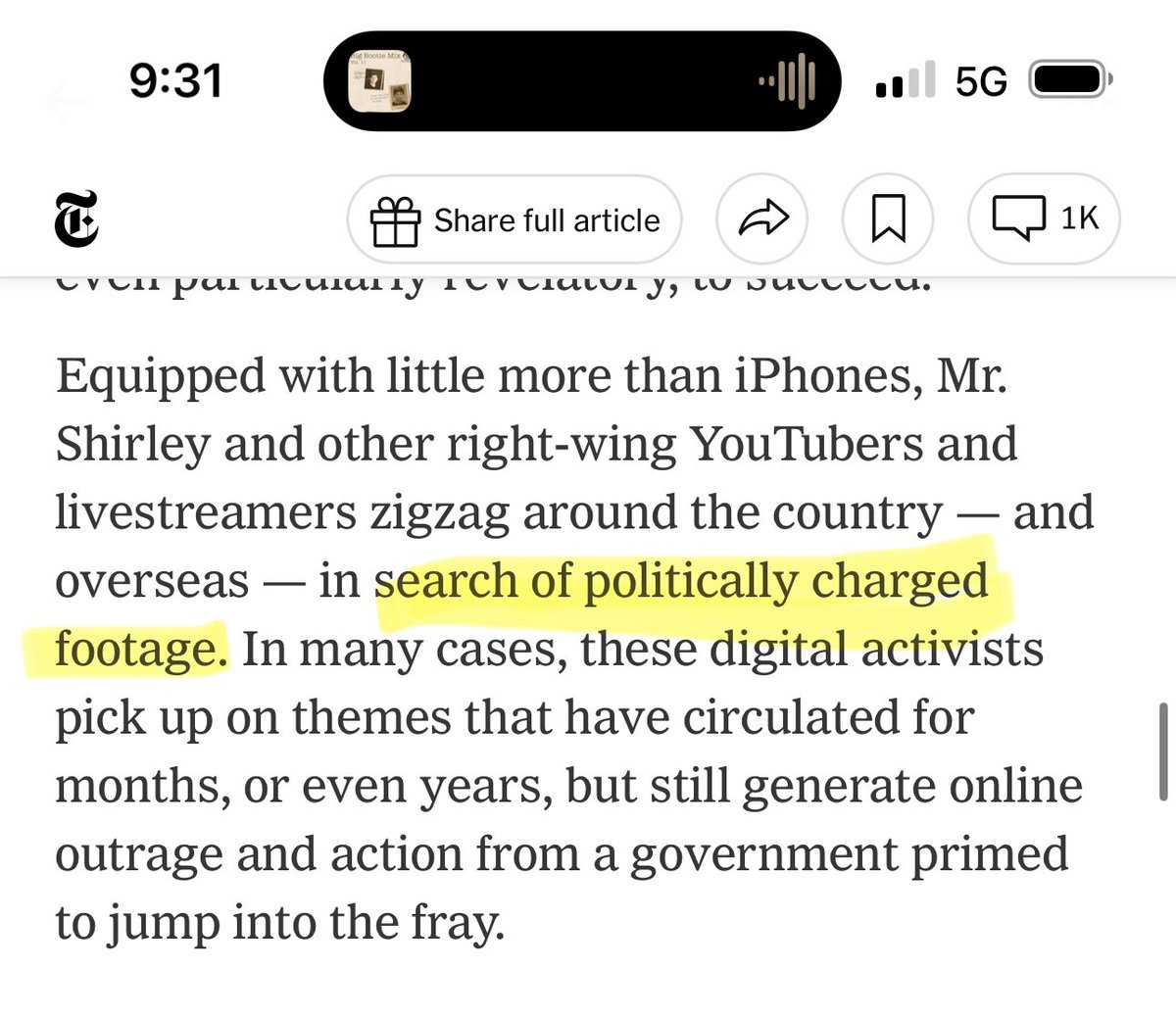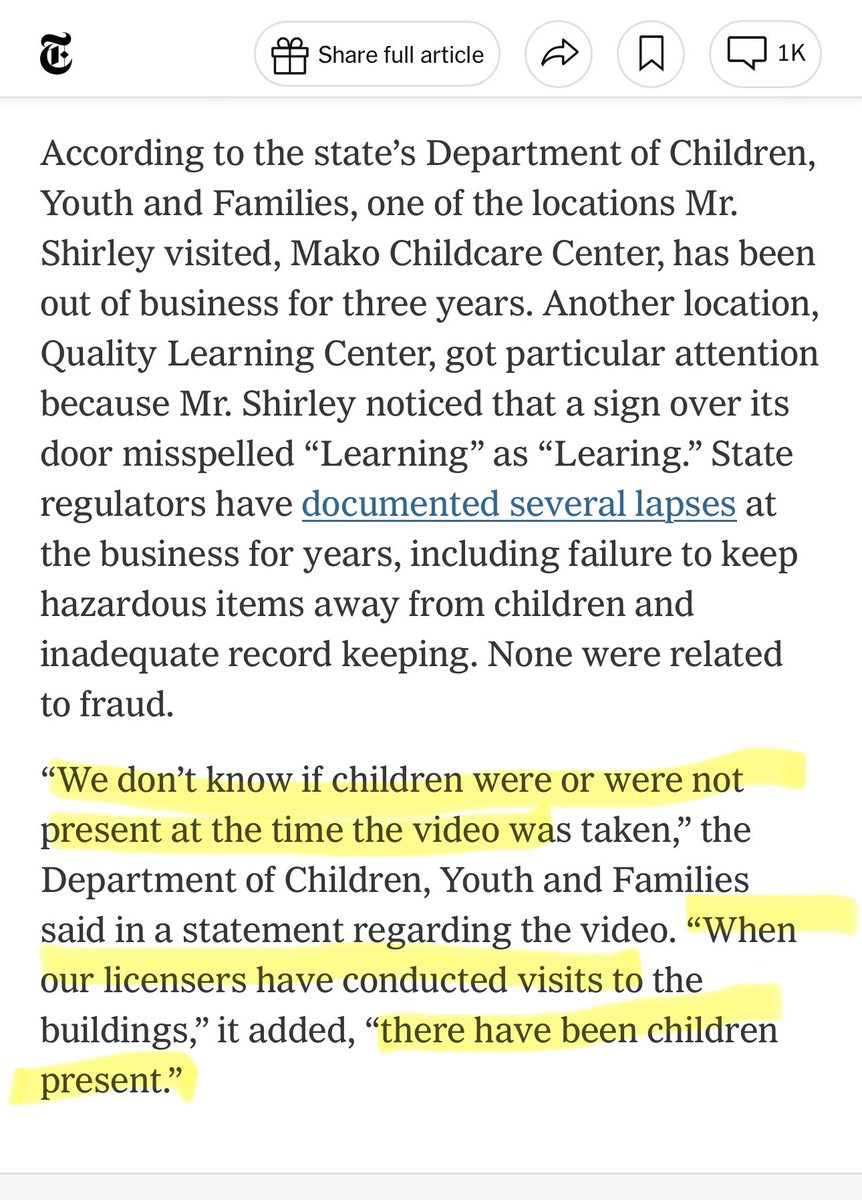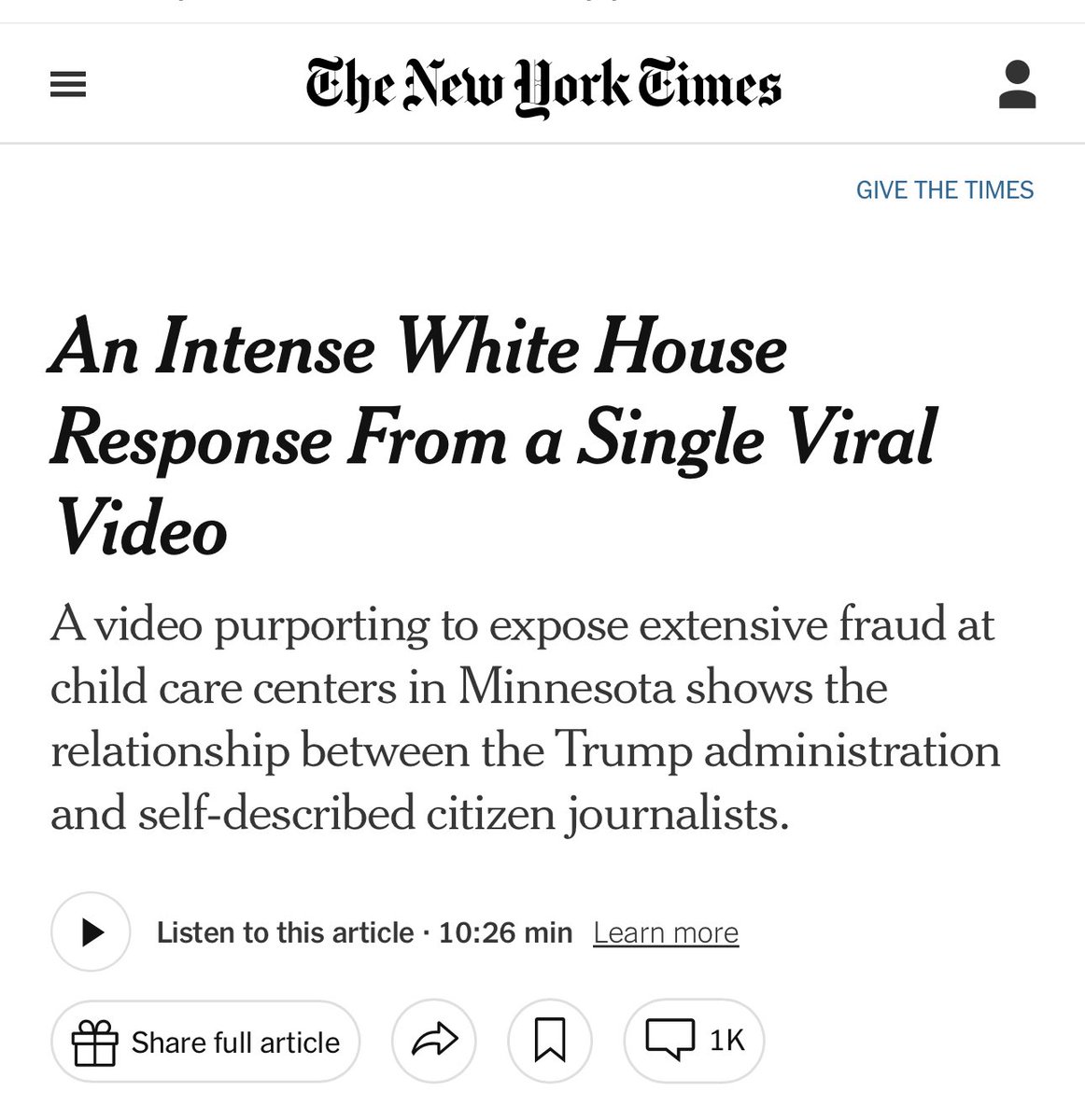🧵THREAD🧵
The idea that Covid-19 may have leaked from a lab in Wuhan, China has gained mainstream traction of late.
It can be easy to forget that, a little over a year ago, the idea was derided as a vile, senseless conspiracy theory.
Let’s revisit. ⤵️
The idea that Covid-19 may have leaked from a lab in Wuhan, China has gained mainstream traction of late.
It can be easy to forget that, a little over a year ago, the idea was derided as a vile, senseless conspiracy theory.
Let’s revisit. ⤵️
@SenTomCotton took much of the initial heat for suggesting this as a possibility back in January.
Here’s what the @nytimes had to say about his “fringe theory” that “lacks evidence” and which “scientists have dismissed.”
Apparently those concerns have been un-dismissed since.

Here’s what the @nytimes had to say about his “fringe theory” that “lacks evidence” and which “scientists have dismissed.”
Apparently those concerns have been un-dismissed since.


In another piece in 2020, @nytimes concluded that “most agencies remain skeptical” and “scientists are dismissive” of the lab leak theory. Unfortunately, appears that was certainly true, but not to their credit.
Yet another story continues to describe the idea as a conspiracy.


Yet another story continues to describe the idea as a conspiracy.



But it wasn’t just NYT.
@CNN was at the forefront, writing up a poll dismissively suggesting that an accidental release was “almost certainly not true,” called the lab in question “the focus of conspiracies” and, of course, used it to take shots at President Trump.


@CNN was at the forefront, writing up a poll dismissively suggesting that an accidental release was “almost certainly not true,” called the lab in question “the focus of conspiracies” and, of course, used it to take shots at President Trump.



And @CNN was content to be used as a conduit for Chinese propaganda on the subject, too, seemingly trusting a dishonest autocratic regime at their word.
Giving free airtime to a hostile power’s propaganda should be indefensible.

Giving free airtime to a hostile power’s propaganda should be indefensible.


Here’s a piece from @ChrisCillizza from February 2020 that points back to a CNN fact check suggesting that you can “draw a line through it and say that didn’t happen” about the lab release theory.
Care to revisit this one, Mr. Cillizza?

Care to revisit this one, Mr. Cillizza?


@jaketapper also took a shot at @SenTomCotton, sharing an interview with an expert that Cotton’s views were something that he “put in the conspiracy theory bucket.”
When do we get to revisit this?

When do we get to revisit this?
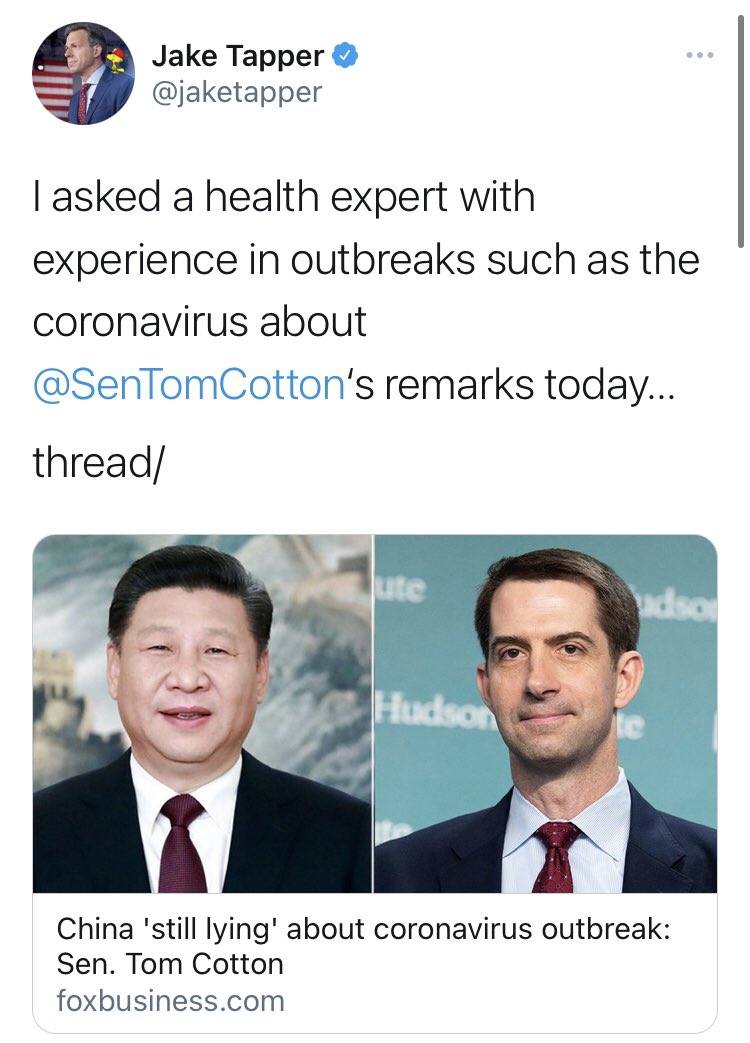

Luckily, in case your relatives were suggesting that this “conspiracy theory” about a lab release were true, @oliverdarcy has you covered with this “how to debunk coronavirus misinformation and conspiracy theories” piece that references the origin of the virus. 

@NPR might’ve been the most dismissive, running stories on back to back days suggesting there was nothing to the allegations & that scientists “debunk[ed]” & “dismiss[ed]” the idea of an accidental release.
They were, in retrospect, entirely wrong, but memoryholed these pieces.

They were, in retrospect, entirely wrong, but memoryholed these pieces.


The way that @MSNBC and @chrislhayes frame these two separate issues seems instructive.
When a theory without enough evidence doesn’t help the narrative, it’s a conspiracy theory.
When it does help the narrative, it’s just an open question - even if it’s a lot less plausible.

When a theory without enough evidence doesn’t help the narrative, it’s a conspiracy theory.
When it does help the narrative, it’s just an open question - even if it’s a lot less plausible.


Perhaps the worst offender, though, was @washingtonpost who, in January of 2020, said that @SenTomCotton’s concerns about a potential lab leak in Wuhan were “fanning the embers of a conspiracy theory that has been repeatedly debunked by experts” (!!!) 





But that wasn’t all from @washingtonpost.
I don’t get how you can factcheck something that we don’t know the facts on - nonetheless conclude that one potentiality is “doubtful.”
And notice the defensive crouch - here & everywhere else - around the “unsubstantiated” lab theory.

I don’t get how you can factcheck something that we don’t know the facts on - nonetheless conclude that one potentiality is “doubtful.”
And notice the defensive crouch - here & everywhere else - around the “unsubstantiated” lab theory.


This from @politico is precisely the type of amnesia that infects reporting like this.
Two months ago, they were lamenting how warnings and concerns about bat research had been ignored.
A year before that, they chalked concerns about the Wuhan lab up to “conspiracy theories.”

Two months ago, they were lamenting how warnings and concerns about bat research had been ignored.
A year before that, they chalked concerns about the Wuhan lab up to “conspiracy theories.”


There was a rush across the board to tell the story as a battle between Trump and a lab in China. As you can imagine, Trump played the role of the villain, at least for places like @ABC back in May of 2020.
In retrospect, it appears obvious that framing wasn’t helpful.
In retrospect, it appears obvious that framing wasn’t helpful.

@NBCNews leaned into this same framing, referring to the idea that the virus could’ve originally come from the Wuhan lab as a conspiracy theory/misinformation.
The other article, well, hasn’t exactly aged perfectly.



The other article, well, hasn’t exactly aged perfectly.




It’s hard to fault @CBSNews when the sources weren’t exactly bulletproof, in retrospect.
But that makes a broader point: journalists should be distrustful of official sources of info. That’s historically been true. Lately, it’s been anything but - leading to errors like this.

But that makes a broader point: journalists should be distrustful of official sources of info. That’s historically been true. Lately, it’s been anything but - leading to errors like this.


@business apparently heard about the concerns tied to the lab, asked the lab run by communist autocrats if they were responsible for loosing a pandemic on the world, and when they (unsurprisingly) said no, Bloomberg reported it as fact. @Forbes did the same. 



@Reuters did the same thing but perhaps worse.
Again: it seems inconceivable to me that so many outlets would take a virology lab run by a hostile autocratic power at their word as a source of truth on what happened.
But lots of them did.

Again: it seems inconceivable to me that so many outlets would take a virology lab run by a hostile autocratic power at their word as a source of truth on what happened.
But lots of them did.


I don’t have much space for blue checks because the media coverage to me is the bigger point here. But I did want to point out that lots of Twitter doctors & professors (potentially the same ones quoted in these pieces) were saying the same.
Here’s an example from @ShamikaRavi:
Here’s an example from @ShamikaRavi:

And of course the usual conspiracy theorists like @MaxBlumenthal had their own perspectives on this one, that just happened to neatly fit all of their priors about the world and how it works (a consistent theme in this thread). 



And with @JRubinBlogger there’s always, always a tweet. 

Do we know for certain how the pandemic started? No, and it isn’t clear that we ever will. I tried to give a lot of leeway on this one given that.
But as you can see, the narrative was strong, the dismissal of other ideas was near-religious, and now it’s as if it never happened.
But as you can see, the narrative was strong, the dismissal of other ideas was near-religious, and now it’s as if it never happened.
Events like this do infinitely more to undermine America’s faith in experts and the media than anything Trump could ever do or say. And it’s all both self-inflected and avoidable.
But too many people can’t seem to help themselves. And whole industries suffer as a result.
But too many people can’t seem to help themselves. And whole industries suffer as a result.
And remember, all of this is coming from the same people who purport to be deeply concerned with the supposed plague of mis- and disinformation.
@NellieBowles puts it perfectly:
@NellieBowles puts it perfectly:
https://twitter.com/NellieBowles/status/1394384578190610432
This situation had many of the classic elements of bad reporting of late: uncritically trusting dishonest sources, rushing to a conclusion because it would hurt President Trump, media circular logic.
And it had an unsurprising result: a huge & quickly memoryholed media failure.
And it had an unsurprising result: a huge & quickly memoryholed media failure.
Okay, I finally broke down and made a Patreon. Don't feel the need to give, but if you like the threads and want to buy me a beer, here's your shot.
I'll give half of anything folks give to a charity in DC fighting homelessness (recommendations welcome) patreon.com/drewholden360?…
I'll give half of anything folks give to a charity in DC fighting homelessness (recommendations welcome) patreon.com/drewholden360?…
Also, for those not familiar with the changing conversation about the possibility of a lab leak origin, here’s a good thread:
https://twitter.com/zeynep/status/1393176434013790214
Also this seems like a good place to re-up this take of mine from April 2020, so long as we’re talking about the ways that tweets age:
https://twitter.com/DrewHolden360/status/1252671364844204032
• • •
Missing some Tweet in this thread? You can try to
force a refresh


